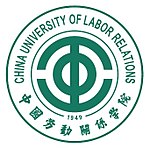
Tsinghua University (THU) is a public university in Haidian, Beijing, China. It is affiliated with and funded by the Ministry of Education of China. The university is part of Project 211, Project 985, and the Double First-Class Construction. It is also a member in the C9 League.
Industrial relations or employment relations is the multidisciplinary academic field that studies the employment relationship; that is, the complex interrelations between employers and employees, labor/trade unions, employer organizations, and the state.

The Beijing Institute of Technology (BIT) is a public university in Haidian, Beijing, China. It is affiliated with the Ministry of Industry and Information Technology. The university is part of Project 211, Project 985, and the Double First-Class Construction.

The Renmin University of China (RUC) is a public university in Haidian, Beijing, China. The university is affiliated with the Ministry of Education, and co-funded by the Ministry of Education and the Beijing Municipal People's Government. The university is part of Project 211, Project 985, and the Double First-Class Construction.

Beihang University is a public university in Haidian, Beijing, China. It is affiliated with the Ministry of Industry and Information Technology. The university is part of Project 211, Project 985, and the Double First-Class Construction.

North China Electric Power University is a public university in Beijing, China. It is affiliated with the Ministry of Education, and co-sponsored by the Ministry of Education, the China Electricity Council, and a council composed of 12 giant state-owned power corporations. The university is part of Project 211 and the Double First-Class Construction.
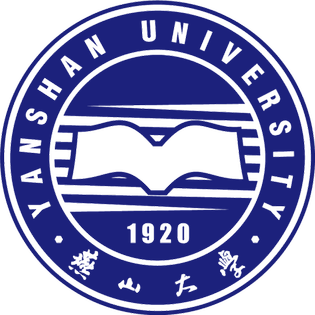
Yanshan University (燕山大学) is a provincial public university in Qinhuangdao, Hebei, China. It is affiliated with the Province of Hebei.

The Hebei University of Economics and Business is a provincial public university in Shijiazhuang, Hebei, China. It is affiliated with the Province of Hebei and sponsored by the provincial government.
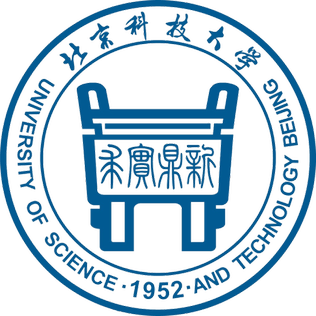
The University of Science and Technology Beijing is a public university in Haidian, Beijing, China. It is affiliated with the Ministry of Education. The university is part of Project 211 and the Double First-Class Construction. The university was formerly known as Beijing Steel and Iron Institute (北京钢铁学院) before 1988.

The University of International Relations is a public university in Haidian, Beijing, China.
The Tianjin University of Science and Technology is a municipal public university in Binhai, Tianjin, China. It is affiliated with the City of Tianjin and funded by the municipal government. Founded as Hebei Institute of Light Industry in 1958, it received university status in 2002.

Beijing Electronic Science and Technology Institute, or BEIST, is located at No. 7 Fufeng Road, Fengtai District, Beijing. It is a general institution of higher learning that trains professional and technical personnel in information security and office automation for party and government agencies. It is affiliated with the General Office of the CPC Central Committee.The college is a major research institute of information security in China. It consists of five departments.
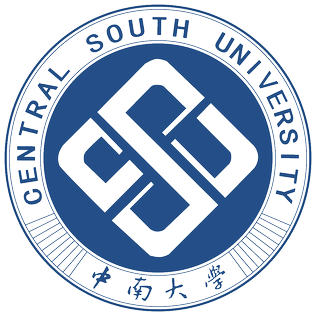
Central South University is a public university in Changsha, Hunan, China. The university is affiliated with and funded by the Ministry of Education of China. It is part of Project 211, Project 985, and the Double First-Class Construction.
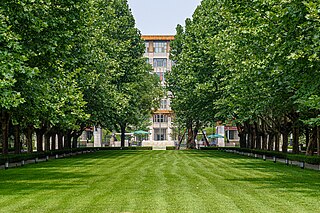
The CentralParty School is a higher education institution that trains Chinese Communist Party (CCP) cadres. It is located in Haidian, Beijing, close to Summer Palace and Old Summer Palace.

The Shanghai Lixin University of Accounting and Finance is a municipal public college in Shanghai, China. It is affiliated with the City of Shanghai and funded by the Shanghai Municipal Government.

Beijing Wuzi University is a higher education institution based in the capital of China, Beijing.
The Xuzhou University of Technology, formerly Xuzhou Institute of Technology, is a municipal public college located in Xuzhou, Jiangsu, China. The college is affiliated with and sponsored by the City of Xuzhou.

Hebei Finance University (HBFU)(Chinese: 河北金融学院; pinyin: Héběi Jinróng Xùeyuàn), formerly known as Hebei Finance College, is located in Baoding, Hebei Province, China. In 2023, the university has an enrollment of 13,775, including 185 graduates and 12,137 undergraduates.

The University of International Business and Economics is a public university located in Chaoyang, Beijing, China. It is affiliated with the Ministry of Education. and co-funded by the Ministry of Education and the Ministry of Commerce. The university is part of Project 211 and the Double First-Class Construction.

Yanjing Theological Seminary, or Yenching Theological Seminary, was jointly established in 1986 by the Chirstian councils of Beijing, Tianjin, Hebei, Shanxi, Inner Mongolia, Shaanxi, Gansu, Ningxia, Qinghai and Xinjiang. It is the only Chistian seminary in Beijing and the regional seminariy which serves churches in northern and northwest China.
